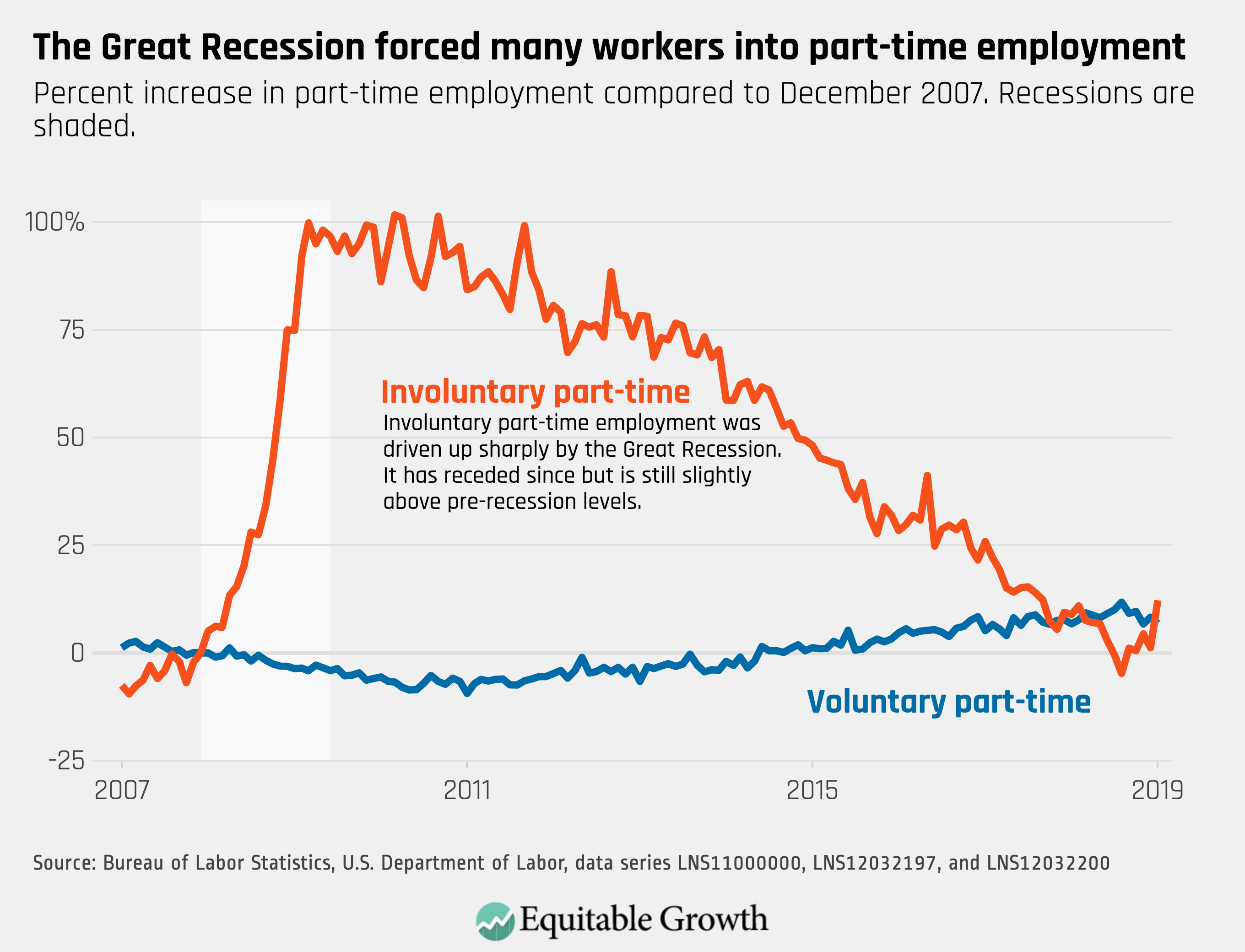Weekend reading: “Poverty and the labor market” edition
This is a weekly post we publish on Fridays with links to articles that touch on economic inequality and growth. The first section is a round-up of what Equitable Growth published this week and the second is the work we’re highlighting from elsewhere. We won’t be the first to share these articles, but we hope by taking a look back at the whole week, we can put them in context.
Equitable Growth round-up
Earlier this morning, the U.S. Bureau of Labor Statistics released new data on the U.S. labor market during the month of January. Check out Kate Bahn’s and Raksha Kopparam’s five graphs that chart the important trends in this data.
Equitable Growth released a new working paper in its Working Paper Series by University of California, Berkeley economist and Equitable Growth grantee Gabriel Zucman, economist Thomas Piketty of the Paris School of Economics, and UC-Berkeley economist and Equitable Growth Steering Committee member Emmanuel Saez. The paper develops a simplified methodology for estimating the distribution of national income by assuming that untaxed income is distributed similarly to the way taxed income is distributed.
The latest entry in Equitable Growth’s Competitive Edge blog is by American University Washington College of Law’s Jonathan B. Baker, who re-examines the legacy of Thurman Arnold—head of the Department of Justice Antitrust Division from 1938 through 1943—for antitrust enforcement today in the context of growing concerns about market power today.
Check out Brad DeLong’s latest worthy reads.
Alix Gould-Werth writes about another new entry in Equitable Growth’s Working Paper Series, “Economic change and the social safety net: Are rural Americans still behind?” by University of Kentucky economist and Equitable Growth grantee James Ziliak. His research finds that social safety net programs have been crucial for keeping rural families out of poverty as the rural labor market has deteriorated.
Links from around the web
While the partial federal government shutdown came to an end and furloughed federal employees received back pay, contract workers for the federal government, who are often the lowest-paid to begin with, did not. [wapo]
Senior Fellow in Brookings’ Governance Studies program and Equitable Growth grantee Vanessa Williamson argues that raising revenue isn’t the real argument for a high marginal tax rate like that proposed by Representative Alexandra Ocasio-Cortez (D-NY). Rather the argument for it is that it will act as a corrective tax to decrease income inequality and the concentration of wealth. [nbc]
Due to occupational segregation—which means the disproportionate representation of a demographic group in certain kinds of work or different types of jobs—women and minority workers are more likely to be laid off when a company downsizes. Companies using position or tenure to make decisions about which jobs to cut, rather than performance evaluations, lead to automatically decreasing proportion of women and people of color on their management teams by 9 percent to 22 percent. [hbr]
During a week when temperatures in the Twin Cities of Minneapolis and St. Paul never reached positive double digits, it’s worth considering what makes the Twin Cities one of the few growing metro areas in the Midwest. In an analysis for Washington Monthly, Nancy LeTourneau identifies the 1971 Fiscal Disparities Act, which required the metropolitan area to pool some of their commercial tax revenues to be shared regionally, for preventing a race to the bottom with one locality luring a business from the next town over in an effort to get new tax revenues. [washington monthly]
A number of proposals to reduce poverty dramatically have been introduced by several Senators who have either announced their candidacy for the Democratic Party’s nomination for president or are anticipated to, marking the issue as potentially central to the forthcoming primary debates. Vox’s Dylan Matthews analyzes five proposals, including their estimated total impact on lifting people out of poverty. [vox]
Friday Figure

Figure is from “Equitable Growth’s Jobs Day Graphs: January 2019 Report Edition” by Kate Bahn and Raksha Kopparam
